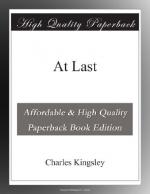It was not a baby’s face that was confronting Mrs. Sutton’s just then. It was no weak, spiritless slave who sustained the pelting shower of her comments, her wonderment and her entreaties that Mabel would refuse to abide by her brother’s decision—her guardian though he was—and if she would not write to Frederic with her own hand, empower her aunt to apply to him for an explanation of the disgraceful mystery.
“We should condemn no man unheard,” she argued.
“It is but fair to give him an opportunity of telling his side of the story.”
“Winston’s letter will inform him of what and by whom he is accused,” said Mabel. “He will have the opportunity you speak of. I should not be content with my brother’s action, were this not so. I have been over the whole ground again and again, since sunset. We—you and I—are powerless. This story is either true or false. If what we have read really happened, what could arise from our correspondence with the offender against honor and virtue? It would but complicate difficulties. If he is unjustly accused, he can prove it, and put his slanderers to shame without our promptings. Our interference would be an intimation that he needed our championship.”
“I believe he will clear himself of every stain,” returned Mrs. Sutton earnestly. “This is either a vile plot concocted by some secret foe, or the Frederic Chilton mentioned here,” pushing the letter away from her on the table, with a gesture of loathing, “is another person.”
“That is very unlikely!”
Mabel leaned her forehead wearily upon her hand, and did not finish the sentence immediately.
“I will be candid with you, aunt, upon this subject, as I have tried to be in every other confidence with which I have burdened you. Frederic Chilton was a student in the law-school, which was also attended by Winston’s correspondent, and at the date specified by him. I have reason to think there was something unpleasant—something he wished to conceal from me, and perhaps from everybody else, connected with his stay there. He referred to it ambiguously on the last evening of his visit here, as a folly, a youthful indiscretion. I have the impression, moreover, that a married woman was mixed up in this trouble, whatever it was—a lady, some years older than himself, whose husband, a naval officer, was absent upon a long cruise. This may be the germ of the story related here, and it may have nothing whatever to do with it.”
In saying “here,” she pointed to the letter. Both avoided touching it as it lay between them, the big seal uppermost, and looking more like bright, fresh blood than ever, in the lamplight.
“My dear, all this proves nothing—absolutely nothing—except that the shock and overmuch solitary musing have made you morbid and unreasonable.”
Mrs. Sutton assumed a collected air, and delivered herself with the mien of one who was determined to submit to no trifling, and to credit no scrap of evidence against her friend which counter-reasoning could set aside.




